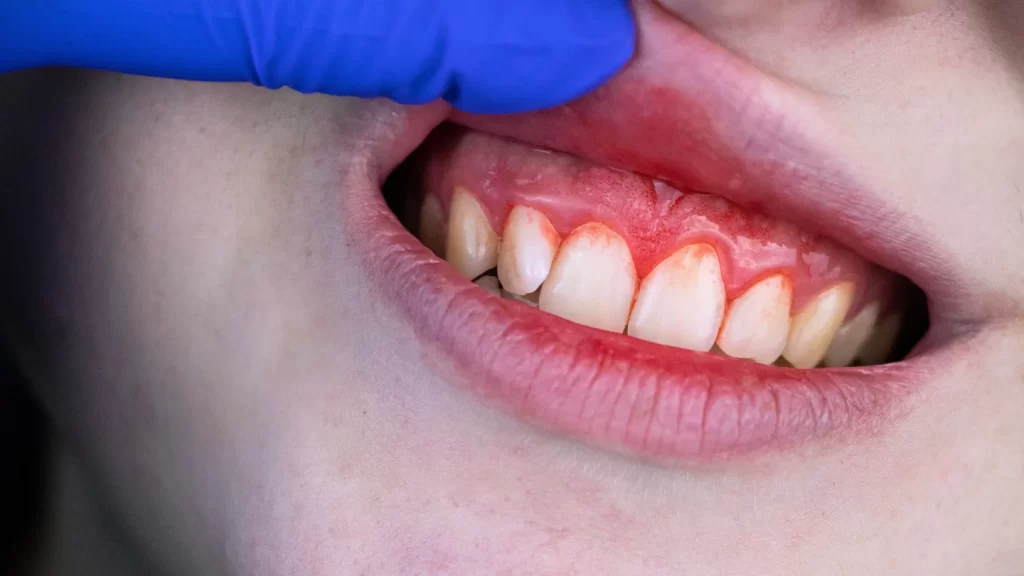It can be scary when your gums start bleeding all of a sudden while flossing. Bleeding gums could be a sign of gum disease, a lack of vitamins, or using the wrong flossing technique. Sometimes, bleeding is not a big problem, but if it happens often, it should not be ignored. Flossing is important, but many people stop flossing when it hurts or causes bleeding.
Finding blood on your floss can be worrying. However, it is usually because of poor brushing, too hard flossing, or inflammation from gingivitis. Regardless of the reason, it is important to handle the bleeding with care. Also, learning the right way to floss can stop the irritation as well as the bleeding.
If your gums bleed every time or often when you floss, you might need to learn the right technique. Or, the problem might be lying in something else. It is important to consult with a Hanford family dentist before the issue gets worse. Schedule a dental appointment today.
Why do gums bleed while flossing?
Flossing is a crucial and non-negotiable part of your oral hygiene. However, when it bleeds while you floss, it can be worrisome. It can make one wonder whether the process is even safe for oral health.
The truth is that flossing is not the problem. In fact, flossing can protect you from various dental problems and extensive treatments. Bleeding gums are often caused by plaque buildup. When plaque stays on your teeth and gums for too long, it can lead to gingivitis.
Gingivitis is a mild gum disease that makes your gums red, swollen, and more likely to bleed when flossing or brushing. If it is not treated on time, it can turn into a more severe issue called periodontitis, which can lead to tooth loss.
Another reason why your gums may bleed is that you are flossing too hard. Many people think that the harder they floss, the cleaner their teeth get. However, that is not true. Being too rough or fast can cut your soft gum tissue and cause pain. It is recommended to floss gently and move the floss along the sides of your teeth.
Finally, bleeding gums can also happen because of other health issues. A lack of vitamins, like vitamin C or K, can make gums weak and inflamed. Hormonal changes, like during pregnancy or menopause, can also make gums more sensitive and prone to bleeding.

When should you see a dentist for bleeding gums?
If your gums bleed only once in a while, it is probably not an issue. Still, it is best to get it checked during a dental visit. However, if they bleed often or every time you floss, it might have a more serious underlying cause. You could have periodontitis, a serious gum disease, which is characterized by bad breath, loose teeth, and swollen gums.
If your bleeding does not stop even after you have improved your oral hygiene and learned the right technique, you should see a dentist.
What are the professional treatments available for the problem?
If your bleeding gums do not get better at home, you might require professional treatments. One common treatment for gum disease is called scaling and root planing. It provides a thorough cleaning that removes plaque and tartar from below the gum line. It helps improve your gum health and prevents the chances of an infection.
Visiting a dentist also allows you to get tailored advice. Your dentist can recommend changes to your diet, and suggest other treatments to keep your gums healthy. They can help you develop a comprehensive oral hygiene plan.
Experiencing bleeding gums while flossing?
If your gums keep bleeding every time you floss, it is not something you should ignore. Schedule a dental check-up to identify the cause and get treated today!

